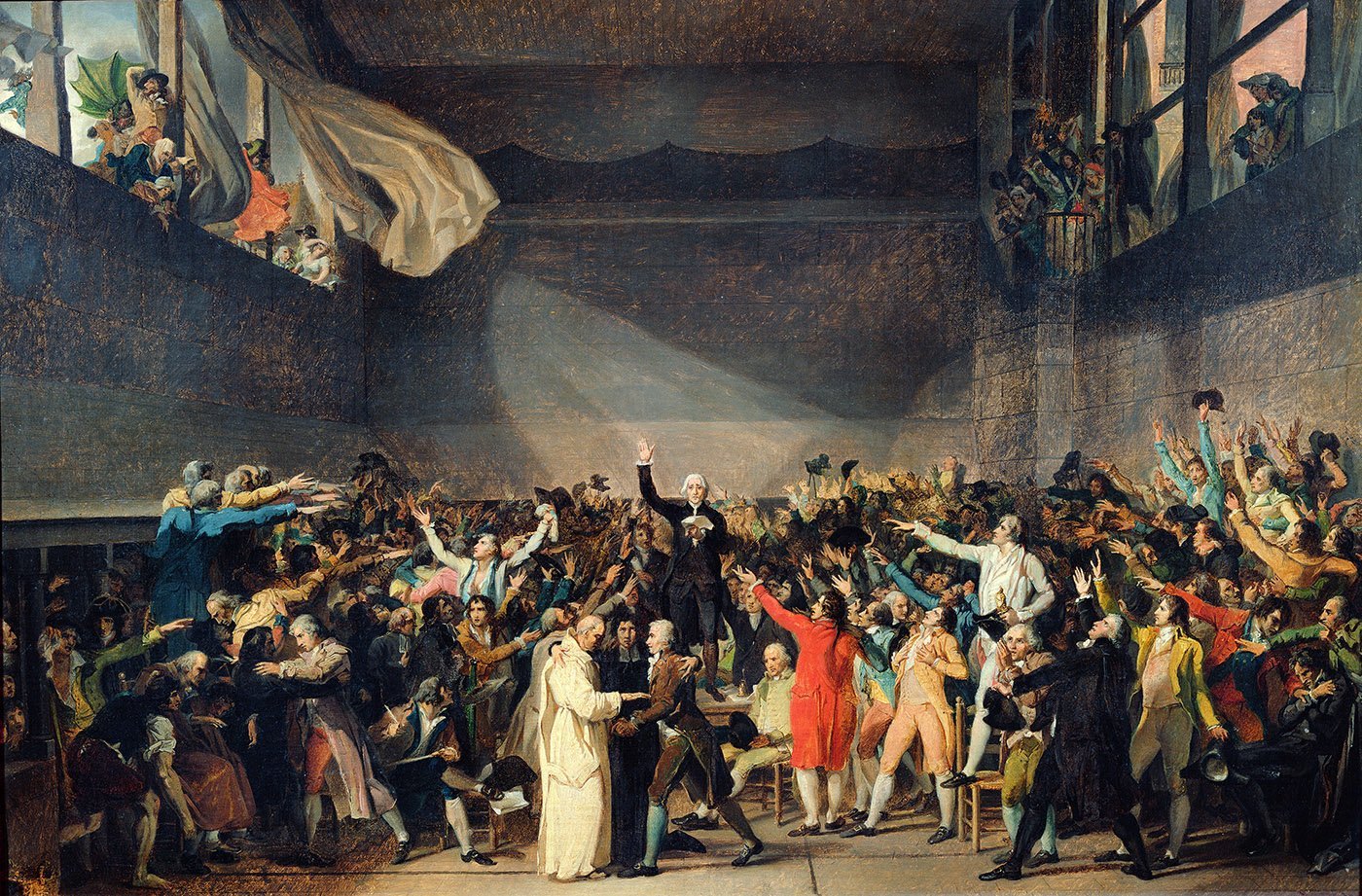 Marriage of Louis XVI & Marie Antoinette
Marriage of Louis XVI & Marie Antoinette
 Tennis Court Oath, 1789
Tennis Court Oath, 1789
 Napoleon Bonaparte, emperor of France
Napoleon Bonaparte, emperor of France
The Enlightenment was the intellectual movement to make the world a better place in
the 17th and 18th centuries. Rousseau was a philosopher who promoted a social contract
between rulers and subjects that stated that subjects had the right to overthrow a
their ruler if he violated their natural rights. This influnced the French Revolution,
in which the monarchy was violently overthrown and replaced with a liberal, democratic
republic. The chaos of the Revolution would eventually turn against itself and become
a dictatorship, only to be overthrown once again.
Prelude
In 1756, France and Austria allied for the first time in the Diplomatic Revolution.
The marriage of Louis XVI of France and Marie Antoinette of Austria symbolized this.
However, Louis XVI was an ineffective ruler. His decision to enter the American
Revolution increased the national debt, while Marie Antoinette's continued lavish
lifestyle became a source of discontent for struggling peasants. As debt increased
and bread prices skyrocketed, France became ready for revolution.
Early Revolution
In 1789, King Louis XVI called a meeting of the Estates General to solve the country's
With the Tennis Court Oath in 1789, members of the Estates General became the national
assembly and promised to keep meeting until change was established. The French Republic
was established in summer of 1789 and led to Maximillian Robespierre's Reign of
Terror, where he increased censorship of the press and executed political opponents.
End of Terror & Reign of Napoleon
In 1794, Robespierre was executed by the National Convention. By 1799, Napoleon
Bonaparte had taken control of France. In 1804 he was crowned emperor of France
and began to attempt a conquest of Europe. Along the way, he spread liberalism
and nationalism which threw governments into chaos. He was eventually stopped in
1812 at Russia. He was eventually fully removed from power in 1815 at the Battle
of Waterloo.
 Marriage of Louis XVI & Marie Antoinette
Marriage of Louis XVI & Marie Antoinette
 Tennis Court Oath, 1789
Tennis Court Oath, 1789
 Napoleon Bonaparte, emperor of France
Napoleon Bonaparte, emperor of France